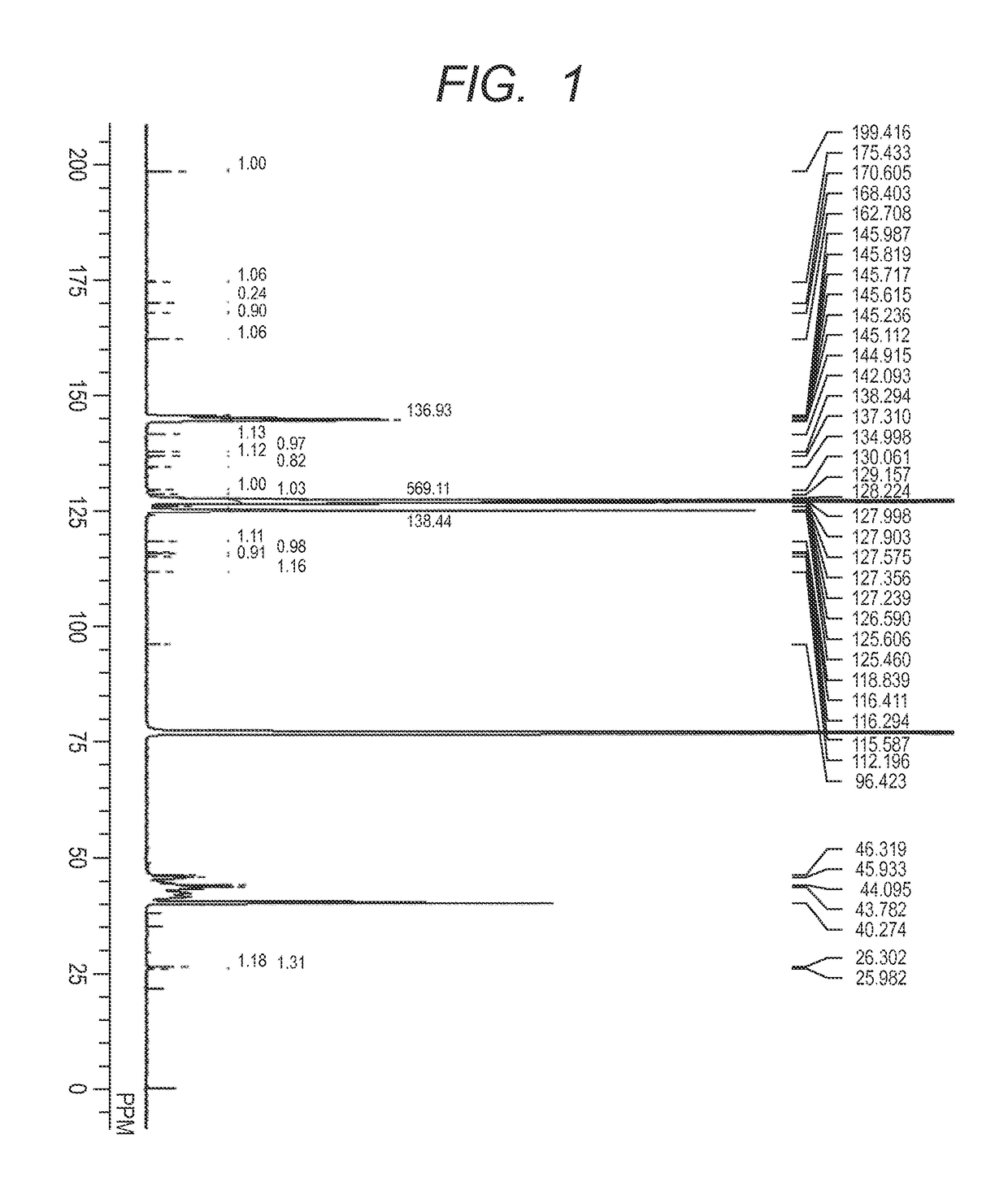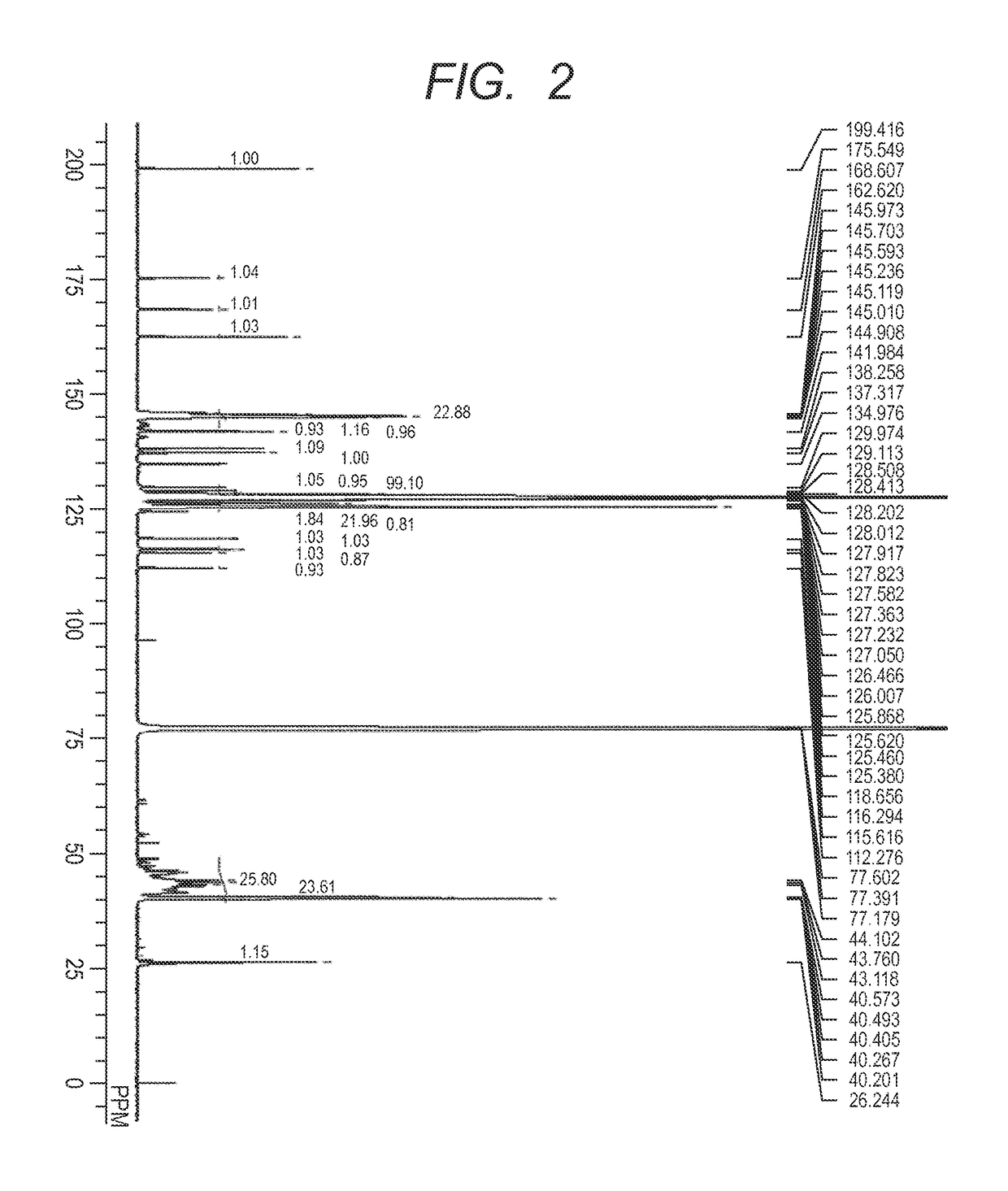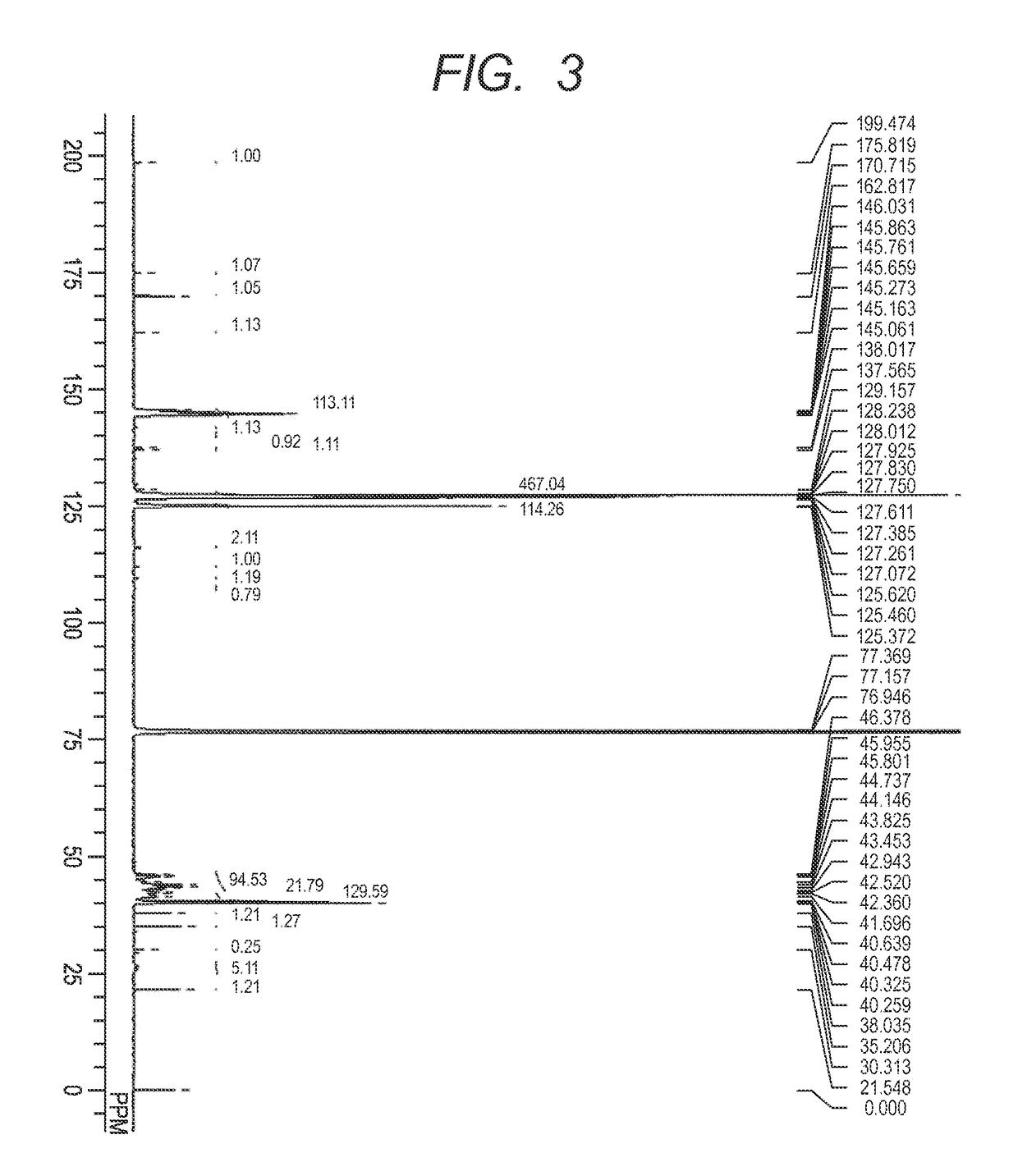Method of producing a compound having a colorant structure, and toner containing a compound obtained by the production method
a production method and colorant technology, applied in the field of producing a compound having a colorant structure, can solve the problems of insufficient ratio of colorant compound introduction to the polymer, excessive amount of dispersant affecting the characteristics to be required depending on application, etc., to achieve high dispersibility, improve dispersibility, and increase the amount of dispersan
- Summary
- Abstract
- Description
- Claims
- Application Information
AI Technical Summary
Benefits of technology
Problems solved by technology
Method used
Image
Examples
example 1
[0252]A compound having a colorant skeleton structure was produced by the following method.
Production Example of Compound (102)
[0253]A compound (102) having a colorant skeleton structure represented by the following structure was produced in accordance with the following scheme.
[0254]
[0255]First, a polymer moiety (P-2) was synthesized. 1.1 Parts of a compound (21) as a radical initiator having a protective group, 50 parts of styrene (22), and 0.83 part of N,N,N′,N″,N″-pentamethyldiethylenetriamine were added to 5.0 parts of anisole, and the mixture was subjected to freeze deaeration three times, followed by the addition of 0.69 part of copper bromide under a nitrogen atmosphere. After the solution had been subjected to a reaction under a nitrogen atmosphere at 100° C. for 8 hours, the reaction solution was exposed to the air. Thus, the reaction was completed. After the completion of the reaction, the reaction liquid was concentrated and then reprecipitated with methanol, and the res...
example 2
Production Example of Compound (105)
[0272]A compound (105) having a colorant skeleton structure represented by the following structure was produced by the same method as described above in accordance with the following scheme.
[0273]
[0274]First, a polymer moiety (P-5) was synthesized. 4.32 Parts of a compound (21) as a radical initiator having a protective group, 80 parts of styrene (22), and 1.36 parts of N,N,N′,N″,N″-pentamethyldiethylenetriamine were added to 8.0 parts of anisole, and the mixture was subjected to freeze deaeration three times, followed by the addition of 1.12 parts of copper bromide under a nitrogen atmosphere. After the solution had been subjected to a reaction under a nitrogen atmosphere at 100° C. for 3 hours, the reaction solution was exposed to the air. Thus, the reaction was completed. After the completion of the reaction, the reaction liquid was concentrated and then reprecipitated with methanol, and the resultant precipitate was dissolved in tetrahydrofura...
example 3
Production Example of Compound (122)
[0287]A compound (122) having a colorant skeleton structure represented by the following structure was produced in accordance with the following scheme.
[0288]
[0289]71.0 Parts of N,N-dimethylformamide and 14.5 parts of concentrated hydrochloric acid were added to 7.49 parts of a compound (32), and the mixture was cooled with ice to 5° C. or less. A solution prepared by dissolving 3.56 parts of sodium nitrite in 20.0 parts of water was added to the solution, and the mixture was stirred at the temperature for 1 hour (diazonium salt solution). 10.0 Parts of the compound (26) and 32.1 parts of calcium carbonate were added to 94.4 parts of N,N-dimethylformamide, and the mixture was cooled with ice to 5° C. or less. The diazonium salt solution was added to the cooled product, and the mixture was subjected to a reaction at 5° C. or less for 3 hours. After the completion of the reaction, the reaction liquid was filtered and the solvent was removed by evapo...
PUM
| Property | Measurement | Unit |
|---|---|---|
| temperature | aaaaa | aaaaa |
| temperature | aaaaa | aaaaa |
| temperature | aaaaa | aaaaa |
Abstract
Description
Claims
Application Information
 Login to View More
Login to View More - R&D
- Intellectual Property
- Life Sciences
- Materials
- Tech Scout
- Unparalleled Data Quality
- Higher Quality Content
- 60% Fewer Hallucinations
Browse by: Latest US Patents, China's latest patents, Technical Efficacy Thesaurus, Application Domain, Technology Topic, Popular Technical Reports.
© 2025 PatSnap. All rights reserved.Legal|Privacy policy|Modern Slavery Act Transparency Statement|Sitemap|About US| Contact US: help@patsnap.com



